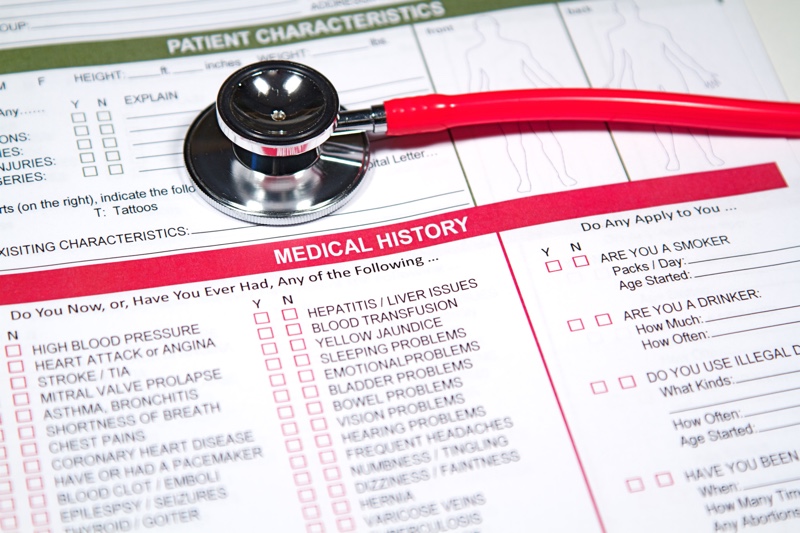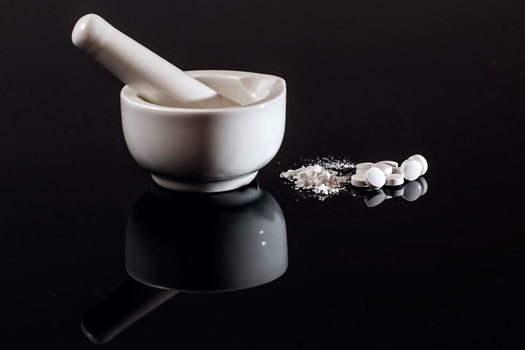Getting Ready
While MDMA (Molly, ecstasy) has an excellent safety record (far better than that of alcohol or cigarettes), there are some medical conditions that might make you a poor candidate for use.
MDMA should be avoided if you are tired or otherwise not feeling well, not so much out of medical concern but simply because you might not enjoy the experience. MDMA is not amphetamine–it does a poor job of waking you up. If you are very tired and take MDMA, you’ll probably be very tired and on-edge when the drug kicks in. It’s not much fun; better to wait until you feel up to a big night. Likewise, if you take MDMA while sick (colds, etc.) the additional strain may make the illness worse or prolong recovery.

Some potential concerns:
Heart Disease
MDMA (ecstasy, molly) is a strong stimulant and constricts blood vessels, which can be dangerous if you have coronary artery blockage. Multiple deaths have occurred from people with heart problems taking MDMA.
Asthma/lung diseases
At least one death has been reported from somebody with asthma taking MDMA. Some people with asthma have reported that MDMA temporarily helps their asthma, since it can constrict blood vessels much like a rescue inhaler. If you have any doubts about your ability to survive a few hours of vigerous exercise, you should not use MDMA (ecstasy, Molly).
Suppressed immune system (AIDS, etc.)
MDMA, like many drugs, places a strain on your body, including the immune system. For healthy people, about all that means is a slightly increased risk of catching a cold or such the day of/after use. For people who’s immune systems are not normal (due to AIDs, anti-rejection drugs used for organ transplant patients, etc.) the additional strain on the immune system could be dangerous. No deaths or serious illnesses have been reported that I know of, but such cases could easily be overlooked by doctors (since infections in immunocompromised patients are expected and might not be traced to drug use.)
Schizophrenia
MDMA (ecstasy, Molly) raises dopamine levels in your brain. Since higher dopamine levels seem to be associated with psychosis, people who are already at a greater risk for suffering from delusions should probably avoid stimulant drugs like MDMA. (One curious case involved a young man who went on a vandalism spree after taking ‘ecstasy’, believing that he was part of an elaborate role-playing game that required him to smash people’s car stereos.)
Epilepsy
As a strong stimulant, MDMA (ecstasy, Molly) can increase the risk of seizures. If you have a history of seizures, you should avoid use (or, if you insist, use only in a safe, controlled environment with a trusted caregiver.)
Diabetes
On the one hand, insulin-dependant (Type 1) diabetics have reported successful and uneventful use of MDMA. On the other hand, there have been several reported cases of serious ketoacidosis in young Type 1 diabetics that had spent hours dancing and had not taken any insulin for 12-24 hours.[1] If you are insulin-dependant and plan to use MDMA, do so at home (or in an otherwise controlled environment) and keep an eye on blood sugar levels.
Allergies
To the best of our knowledge, there is no such thing as an allergy to MDMA (ecstasy, Molly.) The molecule is likely too small and too similar to compounds normally found in the body to set off an allergic reaction. Some people are more sensitive to MDMA than others, but this is probably due to genetic differences in their brains (for instance, men and women are affected slightly differently).
A history of allergies to other substances (such as peanuts or bee stings) does not appear to increase the risks of MDMA use.
Depression and anxiety
While a depressed person is unlikely to be at any greater medical risk than a non-depressed person, they are almost certainly at higher risk of becoming compulsive in their use (since MDMA is a powerful antidepressant, providing temporary relief from their symptoms.) Unfortunately, the temporary impairment of the serotonin system following MDMA use can make depression worse, causing a destructive cycle of taking MDMA to feel better and ending up feeling even worse when the high fades.
On the other hand, MDMA has also been known to snap people out of depressed states and allow resolution of emotional problems. If you are depressed and want to try MDMA, beware of the temptation of frequent use. If you start having serious drug cravings, talk to a doctor about how you feel. Antidepressants (like Prozac, Paxil, and even 5-HTP) can provide some of the emotional relief of MDMA with far less side effects and disruption of your life. MDMA is a wonderful place to visit, but you’re in for trouble if you try to live there. (Common antidepressants such as Paxil, Zoloft, and Wellbutrin interfere with how MDMA works, reducing it’s potency.)
Pregnancy
The effects of MDMA on a developing fetus are not well known, although there is some evidence that it could increase the risk of birth defects (as does alcohol and amphetamines.) Using MDMA while pregnant may increase the risk of harm to the fetus and lower birth weight. MDMA is also excreted in breast milk; women who are nursing should avoid drug use.

Medication interactions:

SSRIs (antidepressants)
Common antidepressants such as Prozac, Paxil, and Wellbutrin can block MDMA (ecstasy, Molly) from taking effect. The strength of this effect depends on the dosage of antidepressant and the individual; some people on antidepressants are able to use MDMA with near normal effects, while others don’t feel anything to speak of, even from high doses of MDMA.
While it may be tempting to temporarily go off your medication to use MDMA, doing so may make you suddenly depressed or anxious. If you are being treated for depression, it’s best to continue that treatment without interruptions.
MAOIs (monoamine oxidase inhibitors)
Birth control pills
A common issue with birth control pills is whether or not another drug will interfere with them. MDMA is not known to interfere with birth control, but the combination hasn’t been properly researched. Given the large numbers of young people using both, I think we would have heard more about it if there were a problem.
Since MDMA has been known to (rarely) cause vomitting, if you took your birth control around the same time as the MDMA and then threw up, you might throw up the birth control pill as well.
Wellbutrin
Wellbutrin is a rather strange antidepressant drug. In the short term it affects norepinephrine, but as metabolites of the drug build up, serotonin is strongly affected as well.
Reports from the combination of Wellbutrin and MDMA have been very mixed. A majority of users report that MDMA is partly to completely blocked by Wellbutrin, but some users report no interference, and there have been a few cases of potentiation (where the effects of the MDMA were much stronger than expected.) Use caution: If you are determined to mix these drugs, start with a low dose and don’t be surprised if nothing happens.
Antidepressants
(Prozac, Zoloft, Paxil, other SSRIs and SNRIs.)
Drugs that inhibit serotonin reuptake (often prescribed for depression, anxiety, trouble sleeping, etc.) will block MDMA’s ability to work. The degree of interference varies by person, SSRI, and dose, but as much as a 70% loss of MDMA’s effects seems to be common.
Although the combination of MDMA and SSRIs/SNRIs doesn’t seem to be particularly dangerous, they usually prevent the user from getting high from MDMA.
Adderall
Viagra, Cialis, etc.
Medications used to treat erectile dysfunction are sometimes taken by ecstasy users to overcome the common problem of impotence in men while under the influence of MDMA. These drugs cause a drop in blood pressure, but are reasonably safe by themselves (though not entirely so: Viagra was associated with around sixty deaths in the first year of its availability.
Given that medications like Viagra and Cialis tend to reduce blood pressure while MDMA increases BP, it’s not clear what additional risks (if any) the combination might pose. There have been anecdotal reports of unpleasent reactions to the combination; start at a low dose if you want to try the combination.
Dextromethorphan (DXM, cough syrup.)
Commonly found in cold and cough medications, DXM is sometimes used recreationally (it is hallucinogenic at high doses.) DXM may reduce your body’s awareness of overheating, and interferes with the breakdown of MDMA by competing for the CYP2D6 enzyme.
The combination is potentially dangerous; avoid!
Caffeine, Ephedra, Psuedoephedrine.
Used for alertness, weight loss and as decongestants, these drugs increase pulse and blood pressure. Combining them with other stimulants may increase the rise of heart attack, stroke, and heatstroke.
Potentially dangerous; avoid using large amounts of these drugs with MDMA.
Don’t see your medication or condition listed here and are wondering if there might be a safety problem with using MDMA? You can take an educated guess at it by asking a few questions:
Do you have a health condition that affects your ability to do sustained moderate exercise (such as a brisk walk) safely? If so, MDMA could pose an increased risk to you.
For medications, does your medication increase pulse, blood pressure, or metabolism (body heat production)? Could it reduce your ability to maintain a normal body temperature? If the answer to any of these is yes, taking that medication with MDMA may increase the risk.
Does your medication affect the same areas of the brain that MDMA acts on (such as serotonin or dopamine?) If so, it may alter the MDMA experience (including potentially increasing risks.)
And finally, is your medication broken down by the enzyme CYP 2D6? (Few people know that offhand, of course, but Google it and you should be able to find information.) If so, then the medication might prevent your body from breaking down MDMA normally, which could increase the risk of overdose.
Of course, you can always contact me if you have a question.
